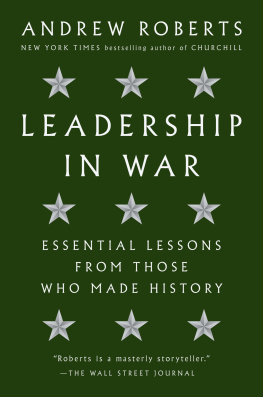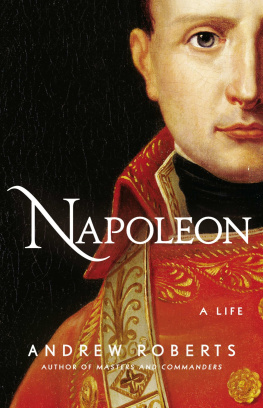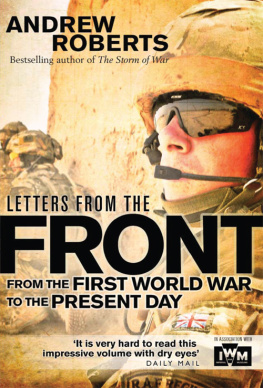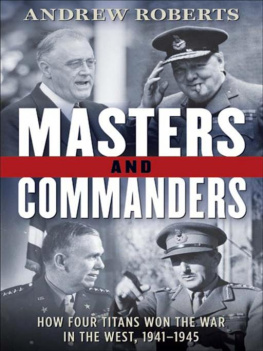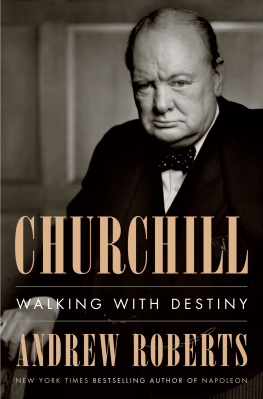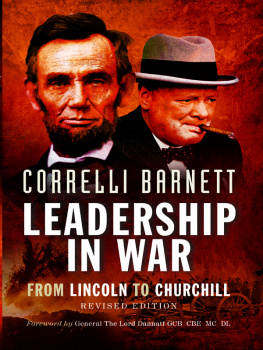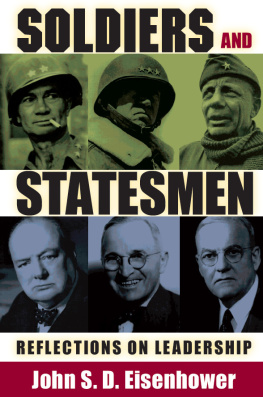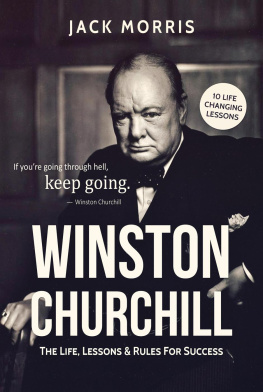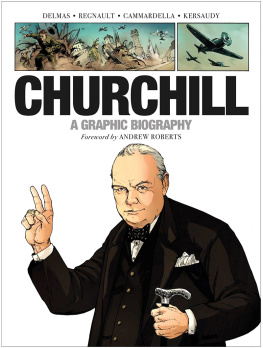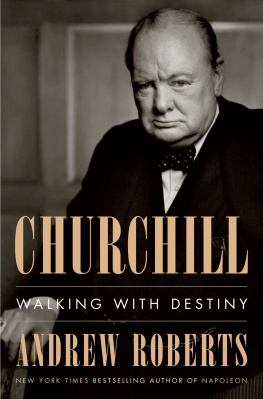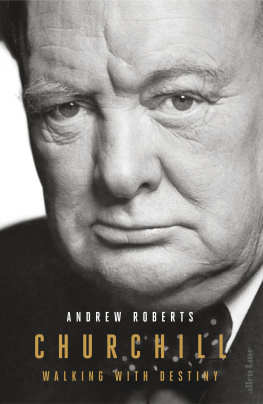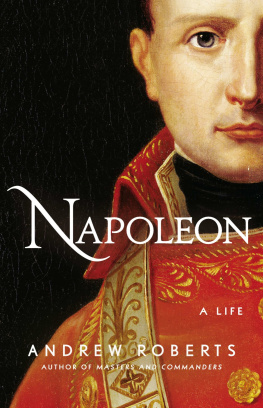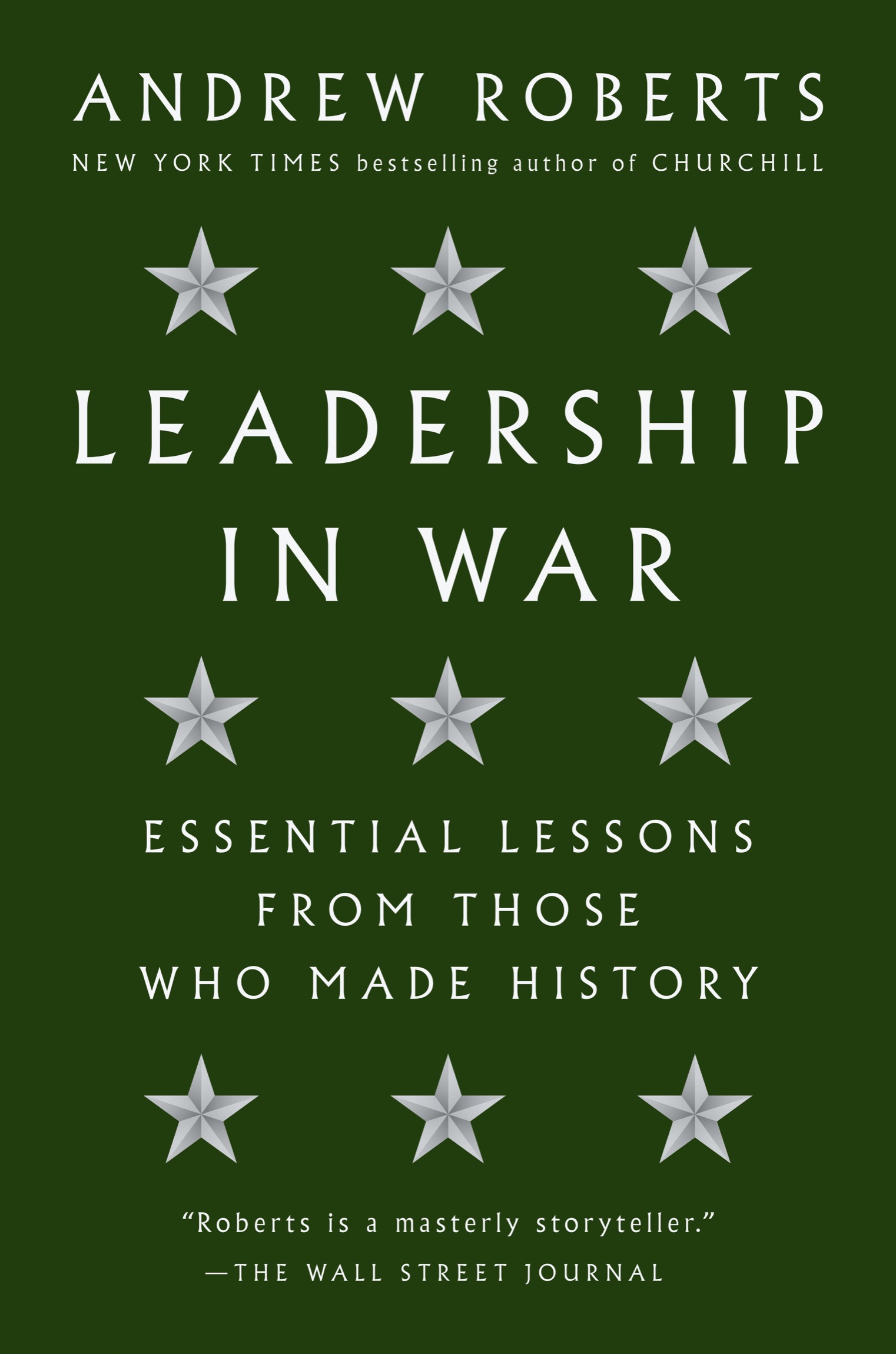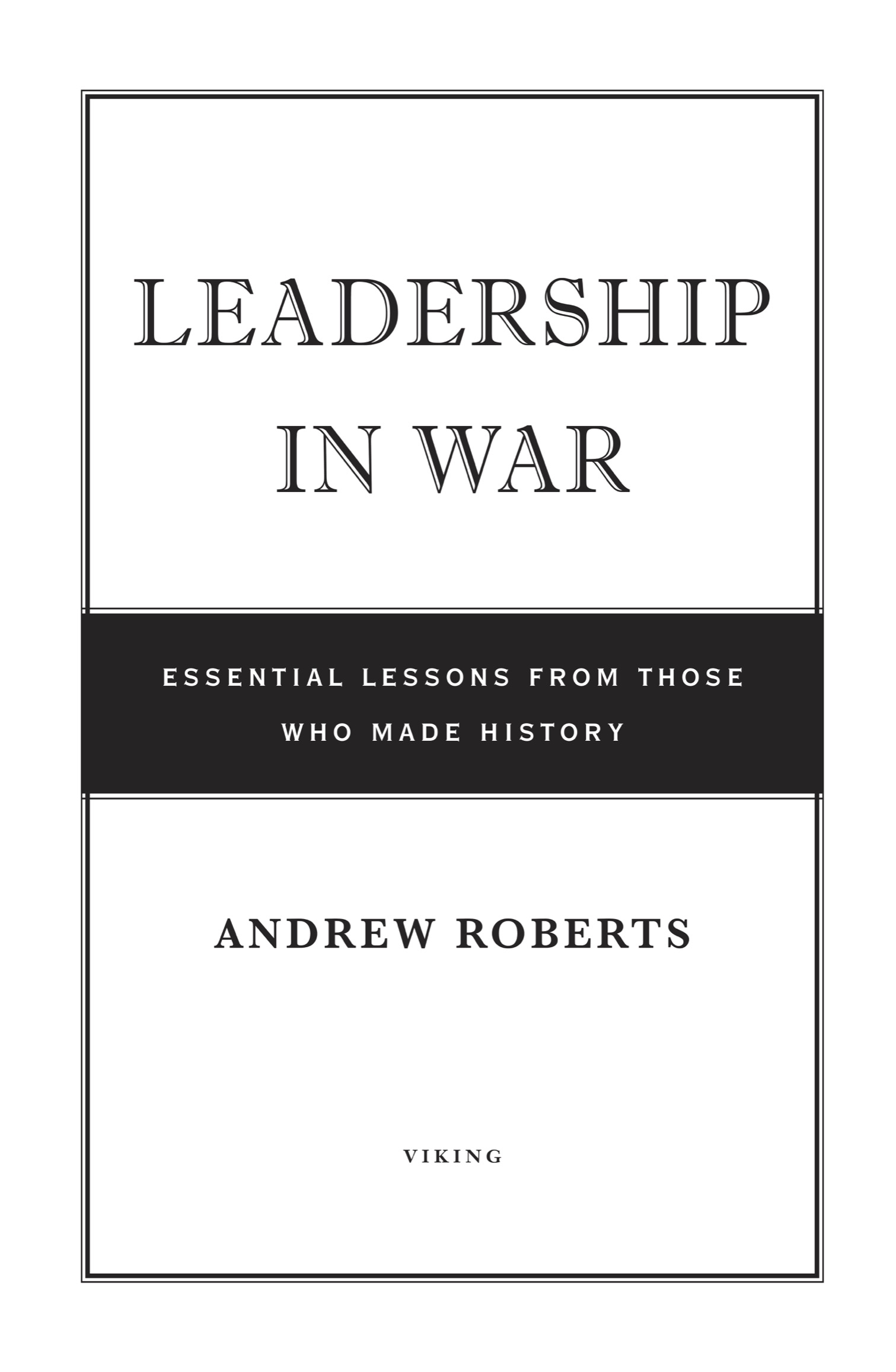ALSO BY ANDREW ROBERTS
The Holy Fox: A Biography of Lord Halifax
Eminent Churchillians
Salisbury: Victorian Titan
Napoleon and Wellington: The Battle of Waterlooand the Great Commanders Who Fought It
Hitler and Churchill: Secrets of Leadership
A History of the English-Speaking Peoples Since 1900
Masters and Commanders: How Four Titans Won the War in the West, 19411945
The Storm of War: A New History of the Second World War
Waterloo: Napoleon's Last Gamble
Napoleon: A Life
Elegy: The First Day on the Somme
Churchill: Walking with Destiny
VIKING
An imprint of Penguin Random House LLC
penguinrandomhouse.com
Copyright 2019 by Andrew Roberts
Penguin supports copyright. Copyright fuels creativity, encourages diverse voices, promotes free speech, and creates a vibrant culture. Thank you for buying an authorized edition of this book and for complying with copyright laws by not reproducing, scanning, or distributing any part of it in any form without permission. You are supporting writers and allowing Penguin to continue to publish books for every reader.
LIBRARY OF CONGRESS CAT ALOGING-IN-PUBLICATI ON DATA
Names: Roberts, Andrew, 1963 author.
Title: Leadership in war : essential lessons from those who made history / Andrew Roberts.
Description: New York : Viking, 2019. | Includes bibliographical references.
Identifiers: LCCN 2019025070 (print) | LCCN 2019025071 (ebook) | ISBN 9780525522386 (hardcover) | ISBN 9780525522393 (ebook)
Subjects: LCSH: LeadershipCase studies. | Command of troopsCase studies. | Military history. | Military biography.
Classification: LCC UB210 .R576 2019 (print) | LCC UB210 (ebook) | DDC 303.3/40922dc23
LC record available at https://lccn.loc.gov/2019025070
LC ebook record available at https://lccn.loc.gov/2019025071
Cover design: Jason Ramirez
Version_1
To Lew and Louise Lehrman, my great benefactors and friends
CONTENTS
INTRODUCTION
THE LEADERSHIP CONUNDRUM
How can one hundred people be led by a single person? That was one of the essay questions in my three-hour Cambridge University entrance exam in 1981. It is a question that has fascinated me ever since. Ultimately, it is the art of leadership that explains how not merely one hundred people, but sometimes a hundred thousand, or a millionor in Chinas or Indias case a billionmen and women can ultimately be led, for good or ill.
This book started as a series of lectures I gave about how war demands and reveals the best and worst in leadership. I decided to focus on nine greatas in the sense of importantleaders and draw out those aspects of their personalities that reveal their leadership in the belief that there is enough in common to understand essential leadership lessons that would be applicable in more peaceful times.
We tend to think of leadership as inherently a good thing, but as the essays on Adolf Hitler and Joseph Stalin point out, it is in fact completely morally neutral, as capable of leading mankind to the abyss as to the sunlit uplands. It is a protean force of terrifying power, and perhaps one day we will rue the fact that there was ever a way that even one hundred people could be led anywhere by a single person. In the meantime, as with lethal diseases or nuclear fission, we clearly need to understand its power and try to direct it toward good, as the other seven subjects of these essays did.
Each of these nine leaders had a profound sense of self-belief, an attribute that is central to great war leadership. In some cases, as in Winston Churchills, it stemmed from a family lineage and education that had emphasized his specialness from birth and his right to lead and rule. In others, such as Napoleons, it stemmed from a growing realization in adolescence and early adulthood of his own remarkable intellect and capabilities. Margaret Thatcher knew by early middle age that she could lead in a way that the men around her seemed incapable of doing. Hitlers sense of self-belief grew from a recognition of the effect his words of hatred and resentment could have in rabble-rousing crowds of unemployed ex-soldiers in Bavarian beer halls in the early 1920s. Nor were setbacks allowed to dash the hopes of these leaders; rather, they tended to be used to steel them. Failure was an incident, often one that provided a lesson for the future; it was not terminal.
All of these leaders also believed they had a task to achieve, and often it was more than simply winning the war they were fighting: For Stalin it was to spread Marxism-Leninism across the globe; for Nelson the utter destruction of the principles of the French Revolution; for Hitler the triumph of the Aryan peoples through the subjection of all others. They all failed, as did Winston Churchill in his dream to prevent what he called the liquidation of the British empire, but Charles de Gaulle succeeded in his aim of restoring French honor after the catastrophe of 1940, Margaret Thatcher succeeded in reversing the seemingly irreversible decline of Britain, and Dwight Eisenhower succeeded in liberating Western Europe.
The book follows roughly chronologically because some of these leaders learned from earlier ones: The thread through Nelson to Churchill to Thatcher, for example, is a clear one, as is the one from Napoleon to Churchill. Almost all of these leadersStalin being the only exceptionread deeply in history and biography when they were young, and were able to place themselves in the continuums of the heroes of their countries. Even Adolf Hitler saw himself as a second Arminius, and code-named his invasion of Russia after the twelfth-century German emperor Frederick I, known as Barbarossa.
When awarding Medals of Honor, President Richard Nixon noted in his book Leaders how many of those who won it must have appeared to be quite ordinary people until they had risen with supreme valor to an extraordinary challenge. Without the challenge they would not have shown their courage. He concluded that in leaders the challenge of war brings forth qualities we can readily measure. The challenges of peace may be as great, but the leaders triumph over them is neither as dramatic nor as clearly visible. It would be next to impossible, therefore, for a prime minister of Luxembourg in a time of peace to be a truly great historical leader. That might be a doleful comment on the human condition, but it is so.
CHAPTER ONE
NAPOLEON BONAPARTE
17691821
On Thursday, June 13, 1793, a slim twenty-three-year-old artillery lieutenant stepped ashore at the port of Toulon in the south of France having escaped from a political maelstrom on his homeland island of Corsica. Napoleon Bonaparte was a penniless, almost friendless, refugee, with a mother and six siblings to support. Yet six years later he became First Consul and dictator of France, and five years after that emperor of the French. Soon afterward he made France indisputably the most powerful nation on the Continent. How did he do it?
Part of the explanation was undoubtedly luck: Napoleon was fortunate to be nineteen years old when the French Revolution broke out, allowing him to rise up the ranks of the French Army to become a general at the age of only twenty-four, in part because the aristocrats who had hitherto officered the French Army had either fled the country or been guillotined. Napoleons own noble background in Corsica was enough to allow him to be educated for free in pre-Revolutionary France, but not enough to send him to the tumbrels.

